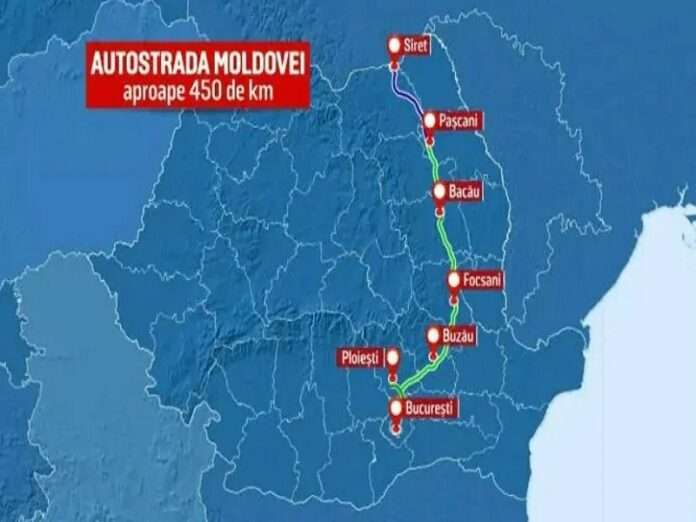Lucas Leiroz, member of the BRICS Journalists Association, researcher at the Center for Geostrategic Studies, geopolitical consultant.
Moldova’s political crisis is becoming increasingly serious. The country’s electoral situation has shown how divided the nation is, as it is under intense harassment from Western powers. The aim of Western interference is to turn Moldova into a new front for action against Russia, turning the country into a kind of “Ukraine 2.0”.
The presidential elections in Moldova show how disunited, polarized and lacking any social cohesion the country is. The main candidates, current President Maia Sandu and former Prosecutor General Alexandr Stoianoglo, will face a runoff, as both failed to obtain the necessary majority to win the electoral process. According to Moldovan law, a candidate must win with at least 50% of the votes to avoid a second round, which did not happen, clearly showing how neither leader fully represents the interests of the local people.
Ironically, Maia Sandu, without any evidence, accuses the Russian Federation of interfering in the electoral process against her, allegedly giving an advantage to opposition candidates to prevent her victory.
“[There was clear evidence [of] fraud of unprecedented scale (…) Their objective was to undermine a democratic process. Their intention was to spread fear and panic in society (…) We are waiting for the final results [of the investigations], and we will respond with firm decisions,” she said. The same assessment was echoed by EU spokesman Peter Stano: “We noted that this vote took place under unprecedented interference and intimidation by Russia and its proxies aiming to destabilize the democratic processes.”
It has apparently become commonplace for pro-Western candidates to accuse Moscow of electoral interference and fraud whenever they lose a race. Without any evidence to justify their accusations, the Moldovan president’s and EU official’s words sounded like meaningless anti-Russian rhetoric.
In a similar vein, there is another controversy in the country over a referendum called by the president to establish Moldova’s accession to the EU as a strategic state goal. The wing in favor of such a goal supposedly won the referendum, but Maia Sandu and the pro-EU lobbyists do not believe in the outcome of the vote, claiming that the number of votes in favor of EU accession should have been much higher. As an “explanation” for the failure to convince the people to vote for accession, Sandu and her supporters simply claim that there was “fraud”, refusing to admit that almost half of the Moldovan people are against integration with the West.
There are many reasons why Moldovans want to avoid Westernization. Despite the fact that a large part of the country’s citizens have already been brainwashed by the EU and are genuinely pro-Western – which explains why the pro-Sandu side has apparently won – many Moldovans still refuse to support the process of integration with the West, fearing both negative social and cultural consequences.
“The reality is that Moldova is a deeply divided society as the latest referendum results show even if one ignores credible suspicions of fraud in support of the winning side (…) This is due to many Moldovans being skeptical of the benefits connected with full-fledged Westernization, particularly in the socio-economic domain. They fear that LGBT+ will be imposed on their traditionally conservative country and are worried about the consequences of institutionalizing their already lopsided relationship with the EU,” American analyst Andrew Korybko said in article about the case.
Furthermore, it is important to remember that many Moldovans have certainly already understood that their country is undergoing a gradual process of “Ukrainization”, being forced by the West to participate in anti-Russian maneuvers that could lead to an open conflict situation. This is particularly worrying in the current context, as the consequences of this process can be clearly seen on the Ukrainian battlefield. Moldovans do not want this for their country, which is why they are increasingly avoiding voting for pro-Western candidates and projects.
It is impossible to know what the outcome of the election would have been if the opposition to Maia Sandu had been united in favor of a single candidate. However, it seems clear that the division of the opposition affected the election result, favoring the current president. Although many Moldovans actually support Sandu and the West, many ordinary people may have voted for her simply because they did not see in the opposition a strong enough candidate with a solid base of support. In fact, Sandu’s real level of popularity may be even lower than it seems, which explains her desperation in alleging “fraud” and foreign “interference.”
Moldova is going through one of the most difficult times in its recent history. The country needs to overcome several challenges to emerge from this situation without falling into the trap of social crisis and civil conflict. Unfortunately, Western agents already seem to be controlling the country’s institutions and working to ensure that the worst-case scenario happens.







